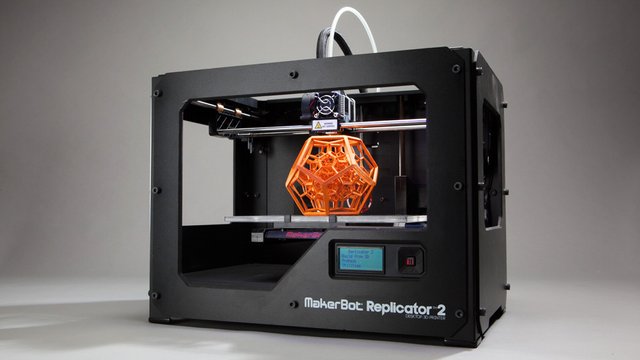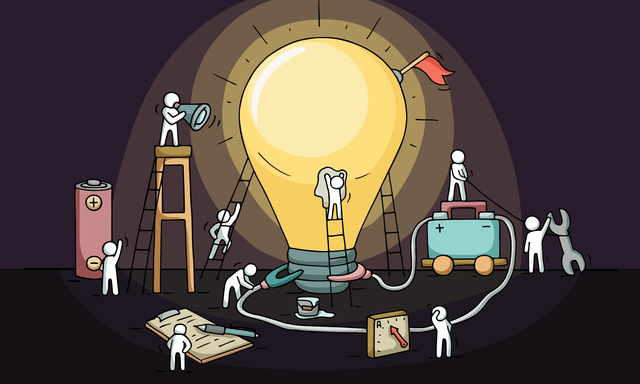What is an Open Value Network?

Where did this idea come from? Can this solve the issues we currently face today and move our society in the right direction?
You might be seeing this used more frequently and I wanted to share this concept for those of you that aren't familiar with OVN.
"An open-value network is a network of open-enterprises that can provide all functions of a corporation in an open-collaboration fashion.
-Yasir Siddiqui, Wikipedia
Open Source

Having open source hardware allows a peer-to-peer network of engineers to come together and constantly evolve a product through shared knowledge. OVN supports the idea of open source and compares the idea to the failure of the Makerbot.
In 2009, the Makerbot 1 launched on an open source hardware RepRap project. This original unit had some success and went on to design the second iteration and launched Makerbot 2. Prior to the launch, the company behind Makerbot decided to make the second iteration a closed and proprietary design that was produced in house.
Makerbot 2 had a bad printer head and was too complex of a design and just didn't work well. Supposedly the major issue was due to the fact that the company behind Makerbot did not reward the open source hardware community that contributed to the original unit's success.
The video below is Tiberius Brastaviveanu of Sensorica discussing OVN and a little on his reasons why Makerbot failed.
Sensorica produces sensors and releases their designs via open source hardware and is a well-respected firm.
You could compare the situation with Makerbot being similar to what Google and their Android Open Source project have had to deal with when working with Qualcomm being closed source with proprietary binaries of their chipsets.
Drawbacks

The structure of OVN has some gaps. Open source community can do good in terms of ideas but can't really produce, distribute and support a physical product.
Like the case with Makerbot, if a company wants to take an open source idea and patent the technology, there isn't much anybody can do about it. These types of organizations are the ones that can bring the ideas to market. The problem with this is organizations that can bring a product to market have a different set of values and are driven by profit and not the actual product.
What Are The Benefits?

With OVN, people can come together to collaborate and enrich innovation. With the development of blockchain technology, it has made it easier to reward those of their contribution to a project through a public ledger.
Developers and enthusiasts can build more of a personal relationship to achieve a greater goal in a collaborative environment. OVN also has the ability to tackle social and environmental challenges that we currently face today. By having an open-legal and governance structures, this can create an open-enterprise framework that can target social and environmental market needs in an efficient way.
Conclusion
With more and more adoption of blockchain technology, this seems like a perfect place for a OVN community to flourish. Steemit in some ways has this model within its structure with the growth of communities collaborating and building strong personal relationships can only lead to more innovation.
Sources: 1,2,3,4,5,6


Open Value Networks are the future. Thanks @bitcoinparadise for this excellent look into an OVN's inner workings. It was conveyed in a straightforward manner that anyone could understand.
Cheers - @pjheinz
Thank you. I appreciate the kind words. I was afraid I might have made it too complicated for new users to understand it.
great article .. I feel the blockchain technology is change the world once more.
A bit late to the table but
Isn't there a prerequisite for a patent application that there is no prior invention like it?
Well if it's open source, there's not really anyone that is patenting anything. But a company could take an open source invention and patent it. Generally, a company wouldn't do that and create their own closed sourced version.
But how is this possible if it is already existing? It's not the companies invention so they shouldn't be able to patent it!
https://www.fenwick.com/FenwickDocuments/Patent_Rights.pdf
OVN...thanks for the update, I keep hearing about this
Interesting video ... keep them coming !
Have a nice day!
very good broo
I like this post, thanks for sharing. @naz722
You must be a speed reader and watcher :P
You explained it very nicely and in the simplest terms!!
nice topics i like that goood
We are building a new breed of Open Value Network - Commons based peer production at SOCIALMARKET.com
Through Granted Rights of property, patents, products, inventory, equipment, from members to the open cooperative we solve the age old problem with defectors (Makerbot 2). If you don't know what natural cooperation (it is the cousin to natural selection) is check out http://www.martinnowak.com
GIFT Currency will reward co-operators and community investors in capital gains faster and with less taxes than if they opened a business themselves or leased/sold their products through other channels. It is like placing your labor, product, patent, commercial property, equipment, etc into the Cloud for everyone to use, build and earn capital gains from.
Any purportedly open architecture will most likely fail or not grow to it's possible potential by not following the rules of natural cooperation.
We currently are the only project known to be working on the defector problem directly. Without compensating co-operators with 100% Fruit of Labor there will always be defectors. GIFT Currency solves the Life, Liberty, and Property (Fruit of Labor) dilemma.